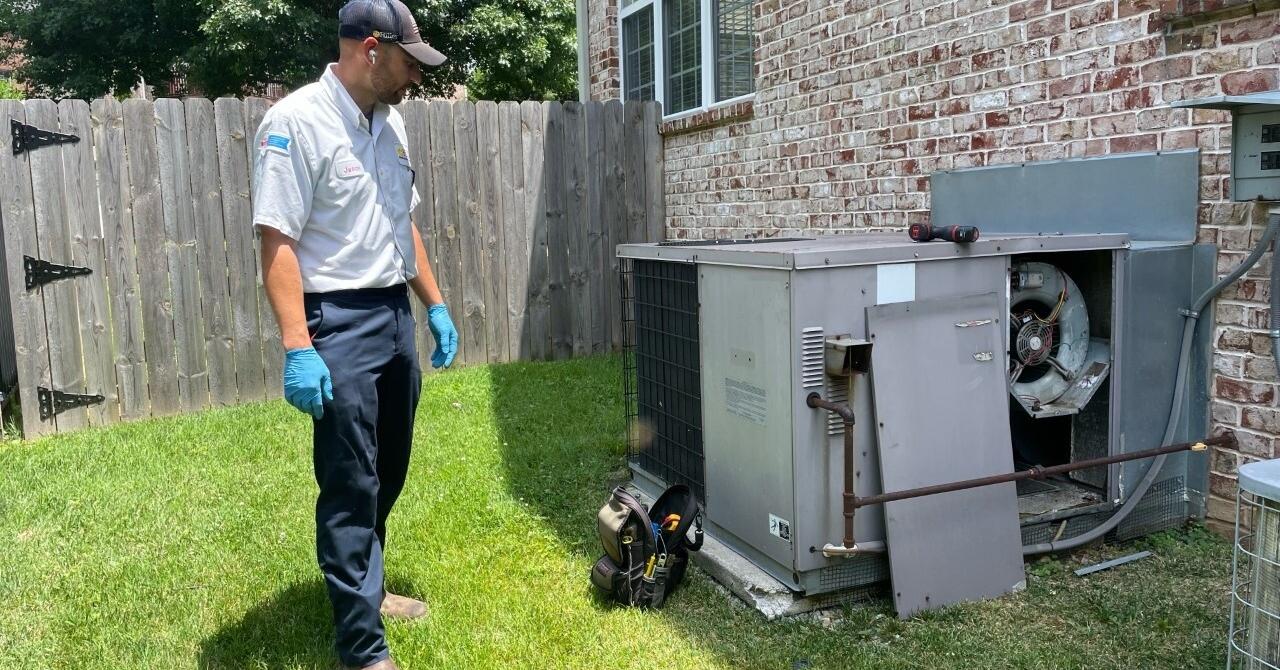Are you curious to know what is a gas pack? You have come to the right place as I am going to tell you everything about a gas pack in a very simple explanation. Without further discussion let’s begin to know what is a gas pack?
In the realm of heating, ventilation, and air conditioning (HVAC) systems, the term “gas pack” stands as a versatile and efficient solution for both heating and cooling needs in residential and commercial settings. Combining the functionalities of a furnace and an air conditioner into a single unit, gas packs offer a comprehensive HVAC solution. Let’s delve into the intricacies of gas packs, exploring their design, advantages, and applications.
What Is A Gas Pack?
A gas pack, also known as a packaged gas/electric system, is an HVAC unit that integrates both heating and cooling components into a single cabinet. This unit combines a natural gas furnace for heating purposes with an air conditioning system for cooling, offering a complete climate control solution in a compact design.
Key Components:
- Gas Furnace: The gas pack contains a gas-powered furnace that generates heat by burning natural gas. This furnace is responsible for heating the air that will be circulated throughout the building.
- Air Conditioning Unit: Alongside the furnace, the gas pack incorporates an air conditioning system. This system uses a compressor and refrigerant to cool the air, providing relief during warmer months.
Advantages Of Gas Packs:
- Space-Saving Design: Gas packs are space-efficient, as they combine heating and cooling components into a single unit. This is particularly beneficial for buildings with limited space for separate heating and cooling systems.
- Energy Efficiency: These units are designed for energy efficiency, allowing users to control both heating and cooling with a single, integrated system. Many gas packs boast high-efficiency ratings, reducing energy consumption and utility costs.
- Convenience and Simplicity: Installation and maintenance of gas packs are generally more straightforward compared to separate heating and cooling systems. With fewer components to manage, routine maintenance and repairs can be simpler and more cost-effective.
Get more information about cast on Starcasto.
Applications And Suitability:
Gas packs are commonly used in residential and light commercial settings, catering to varying heating and cooling demands. They are often installed on rooftops or ground-level pads, making them suitable for a wide range of building structures.
Considerations And Variations:
While gas packs offer numerous benefits, factors such as climate, building size, and specific heating and cooling needs should be considered before choosing this HVAC solution. Additionally, variations in gas pack models, sizes, and efficiency ratings are available to suit different requirements.
Conclusion:
Gas packs epitomize the convergence of heating and cooling technologies, offering a convenient and efficient HVAC solution for residential and light commercial spaces. Their integrated design, energy efficiency, and space-saving attributes make them a favorable choice for those seeking a comprehensive climate control system. As the demand for versatile and efficient HVAC solutions continues to rise, gas packs stand as a testament to innovation in providing comfort and convenience.
FAQ
What Does Gas Pack Mean?
A gas pack unit comes equipped with a gas furnace, air conditioner and evaporator coil. Installing a gas pack unit is a good choice for those looking for a combination of power and efficiency.
What Is The Use Of Gas Pack?
Gas-pak is a method used in the production of an anaerobic environment. It is used to culture bacteria which die or fail to grow in the presence of oxygen (anaerobes).
Is A Gas Pack The Same As A Heat Pump?
A gas pack is a gas-electric packaged system. It combines a gas furnace with an electric A/C in a single unit. It’s a bit like a heat pump, but there are a few key differences.
How Does A Gas Pack Unit Work?
The heating portion of the system uses natural gas or propane to combust inside the heat exchanger, creating heat. As cool air from the interior spaces is pulled in through the return ducting, the blower motor then blows the air over and through the hot heat exchanger, heating the air.
I Have Covered All The Following Queries And Topics In The Above Article
What Is A Gas Pack Unit
What Is A Gas Pack Heating System
What Is A Gas Pack Hvac
What Is A Gas Pack For Heating
What Is A Gas Pack In A House
What Is A Gas Pack Hvac
Gas Pack Vs Heat Pump
How Does A Gas Pack Hvac System Work
Gas Pack Replacement Cost
Goodman Gas Pack
Gas Pack Urban Dictionary
Gas Pack Hvac System Prices
What Is A Gas Pack
